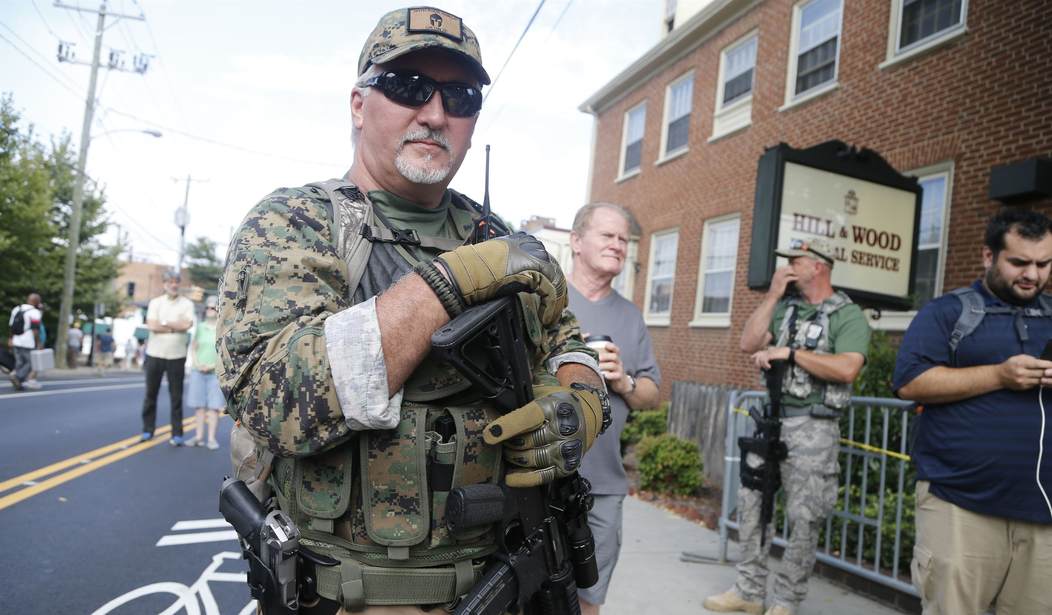Gun laws are the typical response to violent crime among a certain segment of the population. They think that gun control is the answer to everything and there’s not much you can say to change their mind.
However, many of those with reason to understand violent crime–people such as police officers and prosecutors–often don’t think that’s much of an answer.
Here, a former federal prosecutor opines on the topic.
In the wake of mass shootings in Atlanta, Boulder and Indianapolis, I was reminded of a morning in June 2019, when I was on my way into the office and received a panicked phone call with frightening news. A gunman wearing tactical gear and carrying a large rifle was shooting into the lobby of the Earle Cabell Federal Building in Dallas. Many of my team of federal prosecutors were just arriving into work or were already inside — as were hundreds of other federal employees.
We were so fortunate. The Federal Protective Service took down the shooter, and no one else was killed or injured. But that moment came back vividly as I watched the recent coverage of the shooters in Atlanta, Boulder and Indianapolis.
Other memories also flooded back, and they point to the problem that has kept federal prosecutors like me up at night. Throughout my career, I have supported prosecuting gun crime as a way to reduce violent crime and the office I led prosecuted countless gun crime cases. After each active shooter case, I’ve watched commentators chatter in the direction of more gun control laws, even as I and my fellow prosecutors have used the laws already on the books to put people behind bars.
As if like clockwork, the most recent mass active shootings have renewed calls for gun control laws, and the Biden administration announced several similar executive actions. But make no mistake: More gun control laws would not have prevented what happened in Dallas, Atlanta or Boulder. We need a more rigorous and nuanced approach to resolving this problem. And we should take a deeper look at the real threat to lives and safety: lone wolf shooters.
Now, I obviously agree that gun control won’t solve the problem, but it’s after this that I feel the author goes off the rails, likely because of her own personal ties to an incident.
In 2020, the FBI told Congress that one threat was paramount above all others: Lone domestic actors who radicalize online, gain access to weapons and attack soft targets, meaning unprotected people and places accessible to the general public. The data back up their assertion: 2019 was the deadliest year for domestic extremist violence since the Oklahoma City bombing in 1995.
Lone violent extremists are motivated by a mix of ideological, sociopolitical and personal grievances against their targets, which increasingly include large public gatherings, houses of worship and retail locations. By choosing such soft, familiar targets for their attacks, and not conspiring with others regarding their plans, lone wolf actors limit law enforcement’s ability to detect and disrupt them.
OK, now I’m not about to say these people don’t represent any kind of threat. They do.
However, just as more gun control won’t address violent crime like mass shootings, I’m not sure what the author goes on to propose will either.
See, she proposes some abridgement of the Fourth Amendment (in my opinion) to make it easier to prosecute these extremists, but let’s remember that these kinds of attacks are even rarer than your typical mass shooting. The killers in Boulder, Atlanta, Parkland, Virginia Tech, Virginia Beach, and a host of other places weren’t ideologically driven. They were maniacs, plain and simple.
If we want to address mass shootings, we have to take a moment and start looking at why people become mass shooters.
Sure, the author correctly identifies one source of these kinds of attacks, namely the ideologically-driven attacks that are properly termed domestic terrorism. Yet she ignores the plethora of other kinds of motives these people possess prior to their atrocities.
We could focus on extremists, sure, but what about the mentally disturbed dude in a grocery store or the guy who is sick of paying for sex but can’t seem to stop? How will that help the next one of them?
It won’t.
Not going for more gun control is a hell of a good first step. You just have to make the next step meaningful, too.








